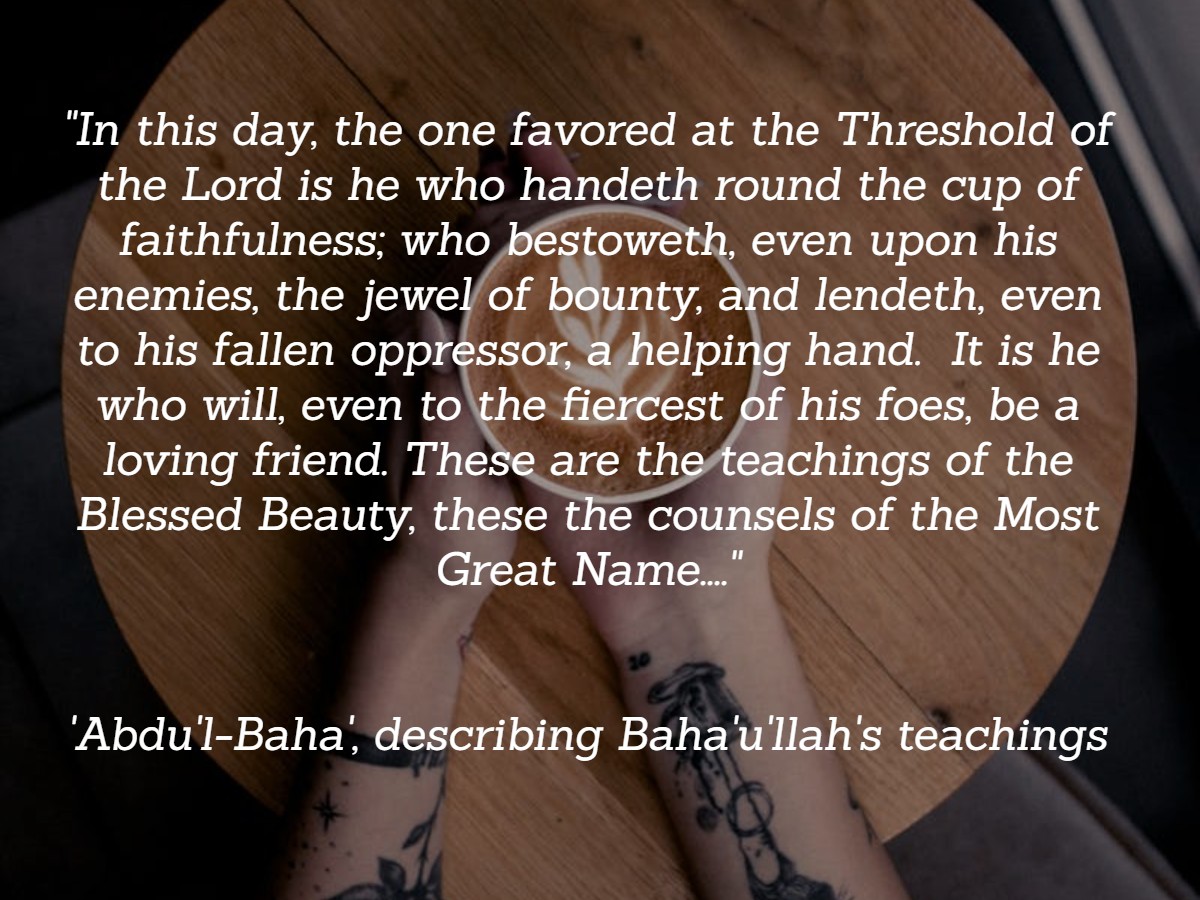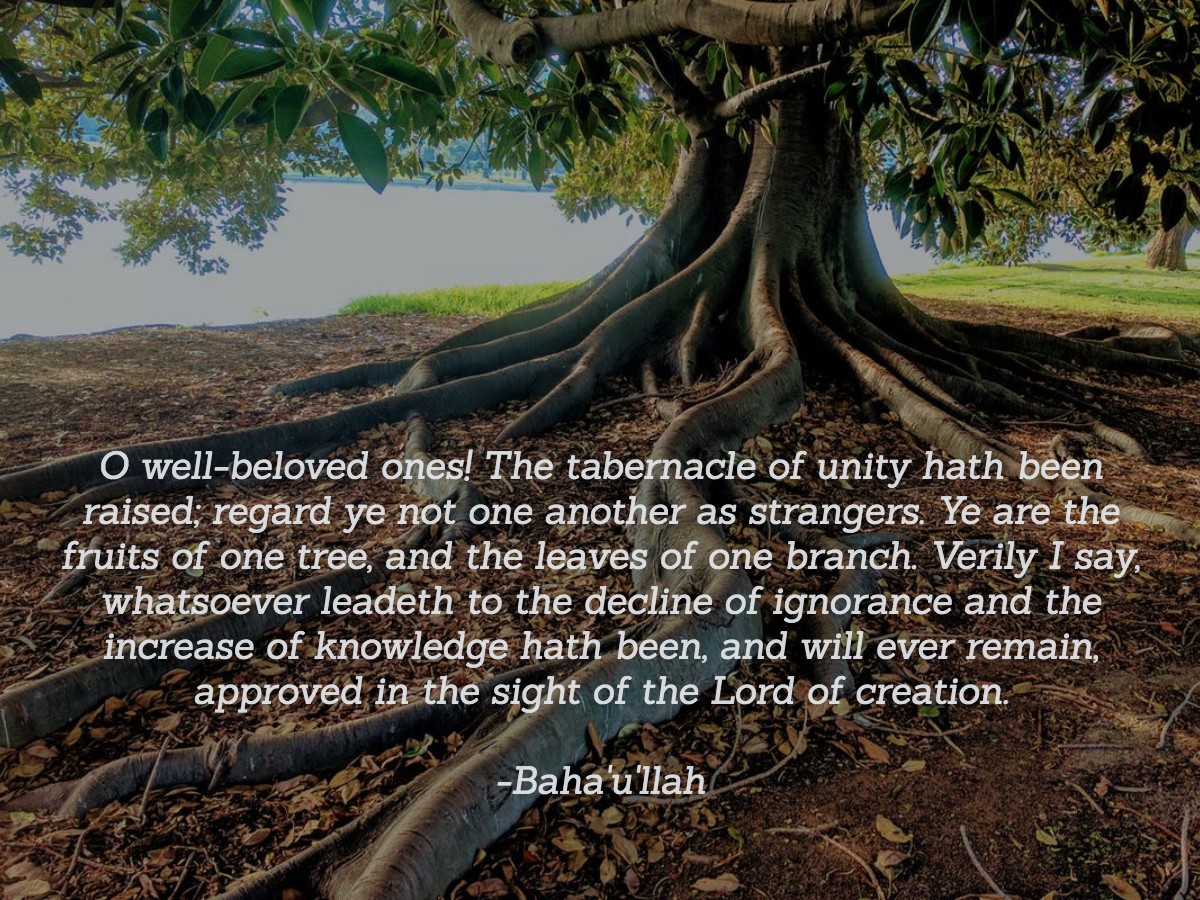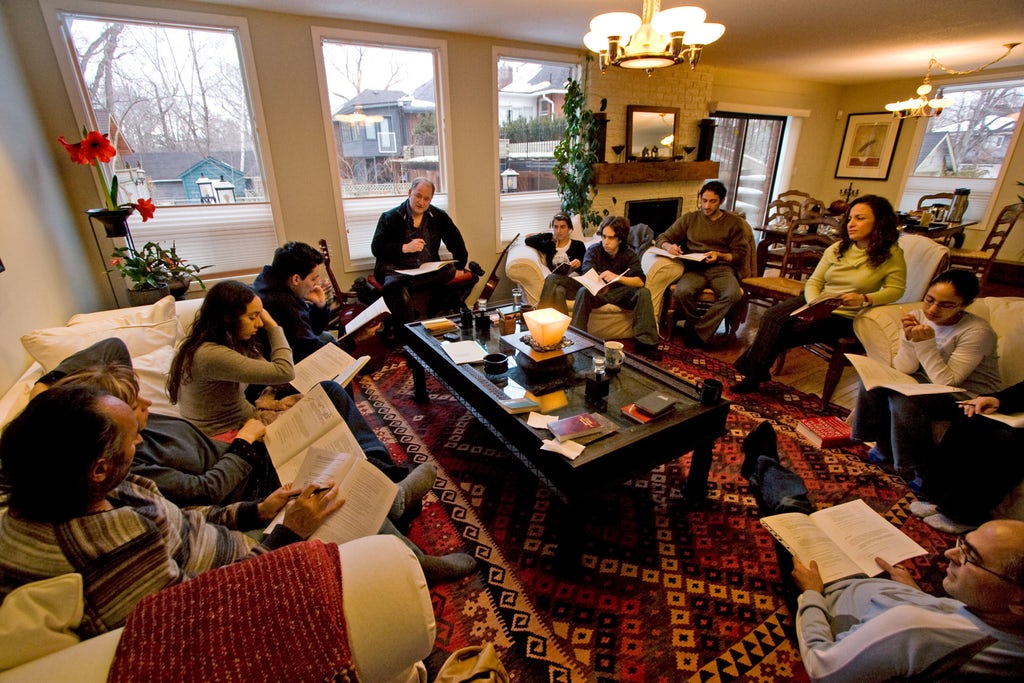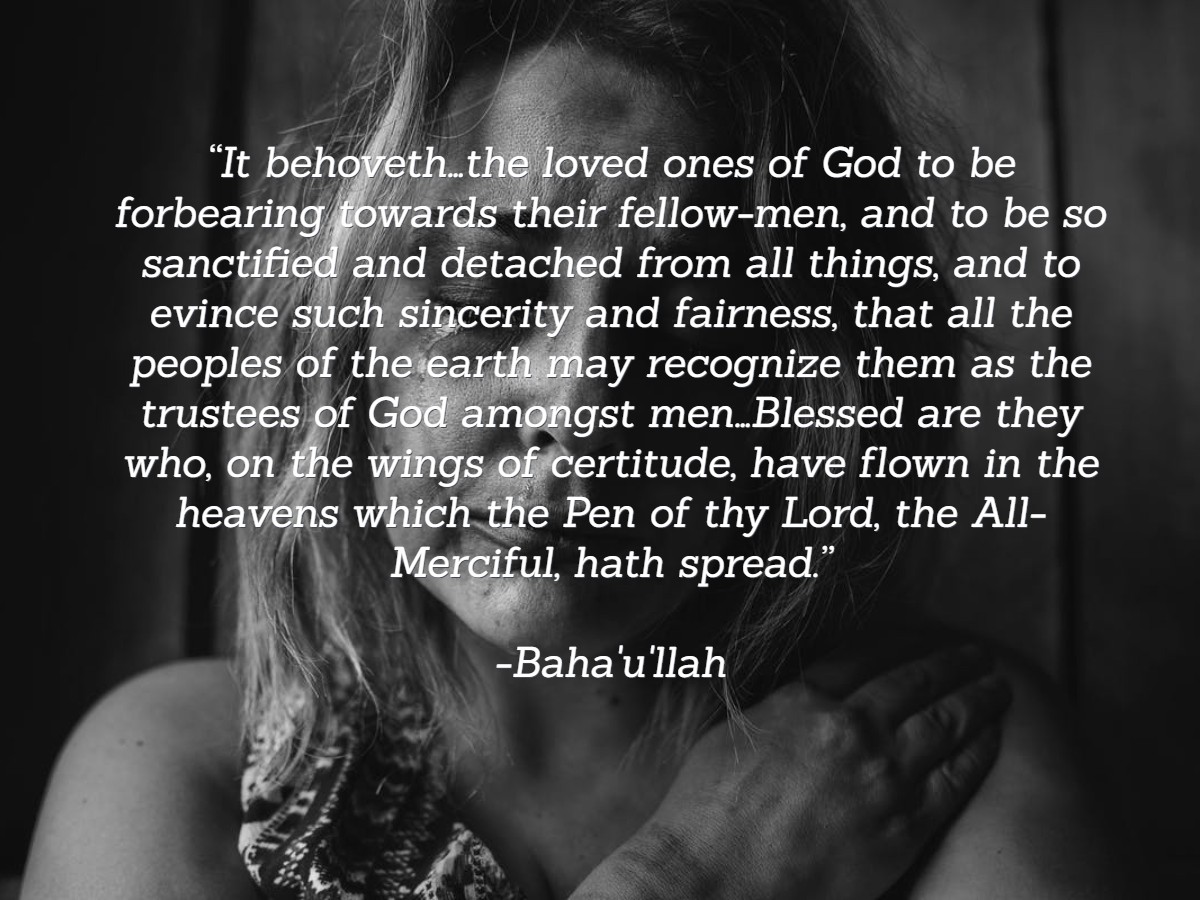“How to Save the World” Series
In the Peace Statement by the Universal House of Justice in 1985, we are called to consider “new patterns of behavior” as we work to build a united world. The most important attitude, belief, or behavior- however we wish to frame it- that we should cling to is the the principle of the oneness of humanity. That becomes the organizing principle for all our thinking, and social structures then need to be constructed that reflect this fundamental and sacred truth-
“World order can be founded only on an unshakable consciousness of the oneness of mankind, a spiritual truth which all the human sciences confirm. Anthropology, physiology, psychology, recognize only one human species, albeit infinitely varied in the secondary aspects of life. Recognition of this truth requires abandonment of prejudice—prejudice of every kind—race, class, color, creed, nation, sex, degree of material civilization, everything which enables people to consider themselves superior to others.”
“Acceptance of the oneness of mankind is the first fundamental prerequisite for reorganization and administration of the world as one country, the home of humankind. Universal acceptance of this spiritual principle is essential to any successful attempt to establish world peace. It should therefore be universally proclaimed, taught in schools, and constantly asserted in every nation as preparation for the organic change in the structure of society which it implies.”
The oneness of humanity seems, in the modern day, like an obvious idea. That has not always been the case, and it was not that long ago- only a little over 50 years ago in the United States- when an advantage of one race of people over another was the law of the land. Indeed, we have an ingrained pattern of regarding certain races as inherently superior to others. The word “inherently” is the key aspect here. Clearly, certain cultures at different times in history have surpassed others- in social development, technology, or moral standards- but no group is “inherently” better than another. In the eyes of God, we are all one people. This is reflected in many passages of the great revelations of humankind, including this one from the Quran- “O mankind, indeed We have created you from male and female and made you peoples and tribes that you may know one another. Indeed, the most noble of you in the sight of God is the most righteous of you. Indeed, God is Knowing and Acquainted.”
While this has been a feature of the revelations of the past, Baha’u’llah makes it the centerpiece of His message.
Ye are the fruits of one tree, and the leaves of one branch. Deal ye one with another with the utmost love and harmony, with friendliness and fellowship. He Who is the Daystar of Truth beareth Me witness! So powerful is the light of unity that it can illuminate the whole earth. The One true God, He Who knoweth all things, Himself testifieth to the truth of these words…Exert yourselves that ye may attain this transcendent and most sublime station, the station that can insure the protection and security of all mankind. This goal excelleth every other goal, and this aspiration is the monarch of all aspirations.
‘Abdu’l-Baha’ explains that the reason that the oneness of humanity is so emphasized now is because social and political changes have brought us to the point where it can be made a fundamental social reality- as opposed to just an abstract truth.
In cycles gone by, though harmony was established, yet, owing to the absence of means, the unity of all mankind could not have been achieved. Continents remained widely divided, nay even among the peoples of one and the same continent association and interchange of thought were well nigh impossible. Consequently intercourse, understanding and unity amongst all the peoples and kindreds of the earth were unattainable. In this day, however, means of communication have multiplied, and the five continents of the earth have virtually merged into one. And for everyone it is now easy to travel to any land, to associate and exchange views with its peoples, and to become familiar, through publications, with the conditions, the religious beliefs and the thoughts of all men. In like manner all the members of the human family, whether peoples or governments, cities or villages, have become increasingly interdependent. For none is self-sufficiency any longer possible, inasmuch as political ties unite all peoples and nations, and the bonds of trade and industry, of agriculture and education, are being strengthened every day. Hence the unity of all mankind can in this day be achieved. Verily this is none other but one of the wonders of this wondrous age, this glorious century. Of this past ages have been deprived, for this century—the century of light—hath been endowed with unique and unprecedented glory, power and illumination. Hence the miraculous unfolding of a fresh marvel every day. Eventually it will be seen how bright its candles will burn in the assemblage of man.
In another passage, ‘Abdu’l-Baha’ states it is the ‘“central theme” of our time-
“In every dispensation the light of divine guidance has been focused upon one central theme…. In this wondrous Revelation, this glorious center, the foundation of Faith of God and the distinguishing feature of His Law, is the consciousness of the oneness of mankind.”
In these passages, ‘Abdu’l-Baha is mirroring a concept that was expressed in many passages of Baha’u’llah’s writings, which He declared to be the new standard by which human behavior is judged-
It is not for him to pride himself who loveth his own country, but rather for him who loveth the whole world. The earth is but one country, and mankind its citizens.
In previous essay series on Sifter of Dust, we have explained the theology of Baha’u’llah’s Revelation- that “God’s Will” is progressively revealed to humanity. Much like how we go through grades in school, the standards change as we grow and develop. Behavior that would be allowable in an earlier grade is no longer condoned in later grades, because children have reached a new stage of development and now must be held to a higher standard than when they were less mature. Baha’u’llah claimed, again and again, to be the mouthpiece of God’s Will for our time in history and many passages in His Writings and Tablets explain this claim in a host of theological and philosophical contexts. For instance, to the leaders of religion, Baha’u’llah addressed the following-
Say: O leaders of religion! Weigh not the Book of God with such standards and sciences as are current amongst you, for the Book itself is the unerring balance established amongst men. In this most perfect balance whatsoever the peoples and kindreds of the earth possess must be weighed, while the measure of its weight should be tested according to its own standard, did ye but know it.
Therefore, for Baha’is, not only is the oneness of humankind a scientific and moral truth, it has the weight of a “divine decree”. It is a law of God. It is a standard we must strive to achieve. As Baha’u’llah stated above- “Exert yourselves that ye might attain the transcendent and most sublime station”. But He also tells us why it is important, because it is a station that “can insure the protection and security of all mankind”. In another passage, He explicitly tells us to throw out certain ideas and cling to this new standard- “Abandon the things current amongst you and adopt that which the faithful Counsellor biddeth you. Deprive not yourselves of the bounties which have been created for your sake.”
If we look at our own behavior or the cultural assumptions we inherit- even unwittingly- from subtle cues and ideas around us, we will recognize that fully appreciating the “oneness of humanity” is a radical change in our thinking with important implications for the structures of our societies world-wide. In the next essay in this series, we will explore some of those implications, as outlined in the Baha’i writings.









